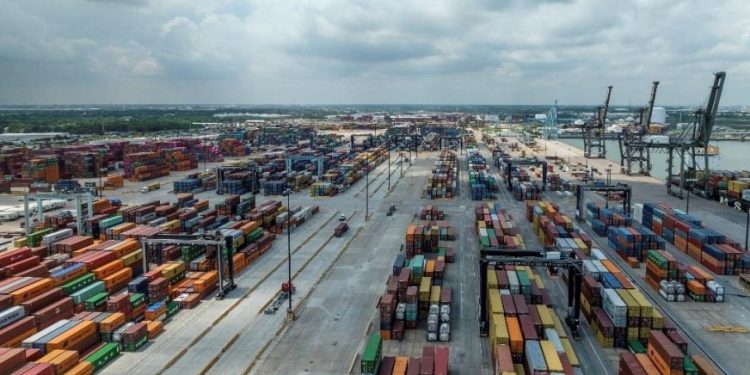A Sustained Import Dwell Fee will go into effect at Port Houston on February 1, 2023, to help maintain fluidity at the Bayport and Barbours Cut Container Terminals and address long-term dwell.
The $45 fee will be charged per unit per day starting on the eighth day after the expiration of free time, as defined in Tariff No. 15 Subrule 095 and Tariff No. 14 Subrule 093.
This fee is in addition to the demurrage charges for loaded import containers provided for in those subrules and does not replace those charges. Containers will be on hold until all terminal fees are reconciled; payment of such fees will be the responsibility of the cargo owner.
The Sustained Import Dwell Fee is intended to minimize long-term storage of containers on the terminals and promote fluidity of cargo movement
said Roger Guenther, Executive Director at Port Houston, explaining that the port has seen during the recent increase in demand that containers sitting on terminals for an extended period of time are a challenge.
This past October, the Port Commission approved the new dwell fee structure to help reduce the amount of time containers sit on terminal. After making the necessary software upgrades, the Sustained Import Dwell Fee will now go into effect beginning February 1.
An Excessive Import Dwell Fee was also approved in October, which can be implemented by Port Houston’s Executive Director as needed. If implemented, it will take effect following thirty days’ public notice and remain in effect for at least sixty days. It is not being implemented at this time.
In similar news, the San Pedro Bay ports of Long Beach and Los Angeles announced that they will phase out the option to collect a “Container Dwell Fee” on January 24, 2023.
Since the program was announced on October 25, 2021, the two ports have seen a combined decline of 92% in aging cargo on the docks.
While the executive directors of both ports have had the authority from their respective harbor commissions to implement the fee, it was never activated because cargo owners were able to clear their long-dwelling cargo off terminals.

































































